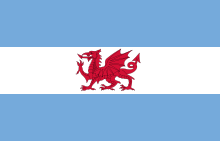- Irlande du nord : sur 18 sièges, 10 reviennent au DUP (unioniste), 7 au Sinn Fein (républicain irlandais), 1 à une indépendante. La progression du DUP et du Sinn Fein se fait au détriment du SDLP ( nationaliste irlandais modéré) et de l'UUP (unioniste). Le paysage politique est désormais scindé en deux blocs tant en nombre de voix que géographiquement.
- Pays de Galles : malgré une baisse globale de son pourcentage de voix (10,4% soit - 1,7%), le Plaid Cymru (nationaliste gallois) emporte 4 sièges soit un de plus que précédemment en gagnant le Ceredigion. Le Labour obtient 28 sièges (+3), les Conservateurs 8 (-3), les Libéraux démocrates perdent leur seul siège.
- Ecosse : le SNP (nationaliste écossais) reste le premier parti d'Ecosse en obtenant son second meilleur résultat depuis les années 1970 mais subit un recul sévère par rapport aux législatives de mai 2015 qui dans la dynamique du référendum lui avaient donné 56 sièges. Cette année, le SNP remporte 35 sièges soit une perte de 21 sièges dont ceux de deux personnalités historiques Angus Robertson et Alex Salmond ; les Conservateurs remportent 13 sièges (+12), le Labour 7 (+6), les Libéraux-démocrates 4 (+3). Ces résultats auront sans aucun doute un impact sur le second référendum sur l'indépendance qui devrait être remis à plus tard.
Globalement, l'échec des Conservateurs qui n'obtiennent pas la majorité absolue à Westminster va sans doute les amener à constituer un gouvernement minoritaire en s'appuyant sur les unionistes nord-irlandais du DUP .











